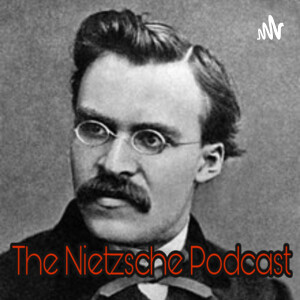
We all know that Nietzsche said, "What does not kill me makes me stronger", but it is less often remembered that he began that aphorism with the caveat, "From the military school of life". We find, in fact, that many of Nietzsche's powerful insights on self-knowledge, self-control, and the search for truth come from this same military school of life. Nietzsche celebrates war and warriors throughout his work, most notably in passages of book one of Thus Spoke Zarathustra which often beguile first time readers coming at Nietzsche's work from a humanist or existentialist bent. How could a philosopher of intellectual freedom and independence tell his audience to "die in battle and squander a great soul"? How could he say that a war is not made just by the cause, but the cause made just by the war? Could Nietzsche actually have been pro-war? As a matter of fact, views on war that were on the whole positive were not uncommon in the 19th century, and Nietzsche is no exception to this. Of course, with Nietzsche, it goes deeper, insofar as the influence of Heraclitus and his conception of strife as a creative force inspired Nietzsche. In his view, all the world is war, and every aspect of existence is a manifestation of this unceasing conflict. This war exists on the physical level, on the social level, within our ideas, and within ourselves. Life itself is a bella omnium contra omnes, the war of all against all. With this war as the revealed character of the phenomenal world, Nietzsche argues for accepting war as a fact of life: even as its fundamental character.
Episode art: Nietzsche in his military uniform, circa 1864
view more
More Episodes
48: At Noon
 2022-08-02
2022-08-02
 2022-08-02
2022-08-02
47: The Meaning of Life
 2022-07-26
2022-07-26
 2022-07-26
2022-07-26
Q&A #4
 2022-07-19
2022-07-19
 2022-07-19
2022-07-19
44: Cartesian Dualism
 2022-06-28
2022-06-28
 2022-06-28
2022-06-28
43: Nihilism
 2022-06-21
2022-06-21
 2022-06-21
2022-06-21
42: Goethe's Faust, part 2
 2022-06-14
2022-06-14
 2022-06-14
2022-06-14
41: Goethe's Faust, part 1
 2022-06-07
2022-06-07
 2022-06-07
2022-06-07
39: The Genius of the Heart
 2022-05-17
2022-05-17
 2022-05-17
2022-05-17
38: The Genius of the Species
 2022-05-10
2022-05-10
 2022-05-10
2022-05-10
Q&A Episode #3
 2022-04-29
2022-04-29
 2022-04-29
2022-04-29
35: The Spirit of Music
 2022-04-20
2022-04-20
 2022-04-20
2022-04-20
34: Self-Control
 2022-04-12
2022-04-12
 2022-04-12
2022-04-12
33: The Overman, part 2: The Convalescent
 2022-04-05
2022-04-05
 2022-04-05
2022-04-05
012345678910111213141516171819
Create your
podcast in
minutes
- Full-featured podcast site
- Unlimited storage and bandwidth
- Comprehensive podcast stats
- Distribute to Apple Podcasts, Spotify, and more
- Make money with your podcast
It is Free
- Privacy Policy
- Cookie Policy
- Terms of Use
- Consent Preferences
- Copyright © 2015-2024 Podbean.com






